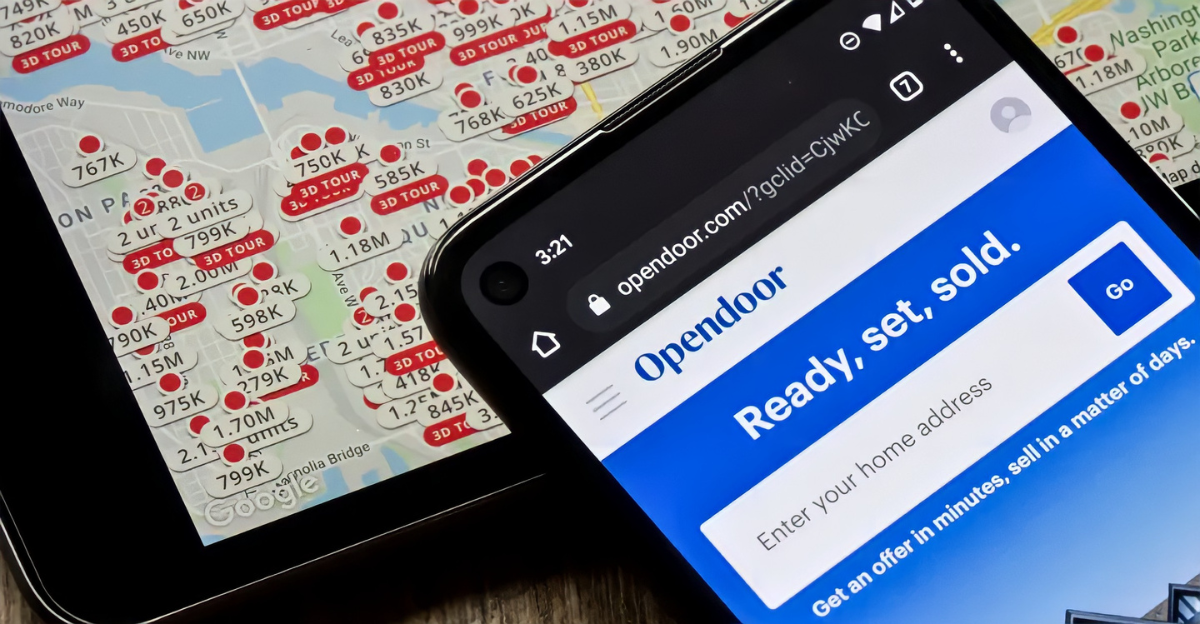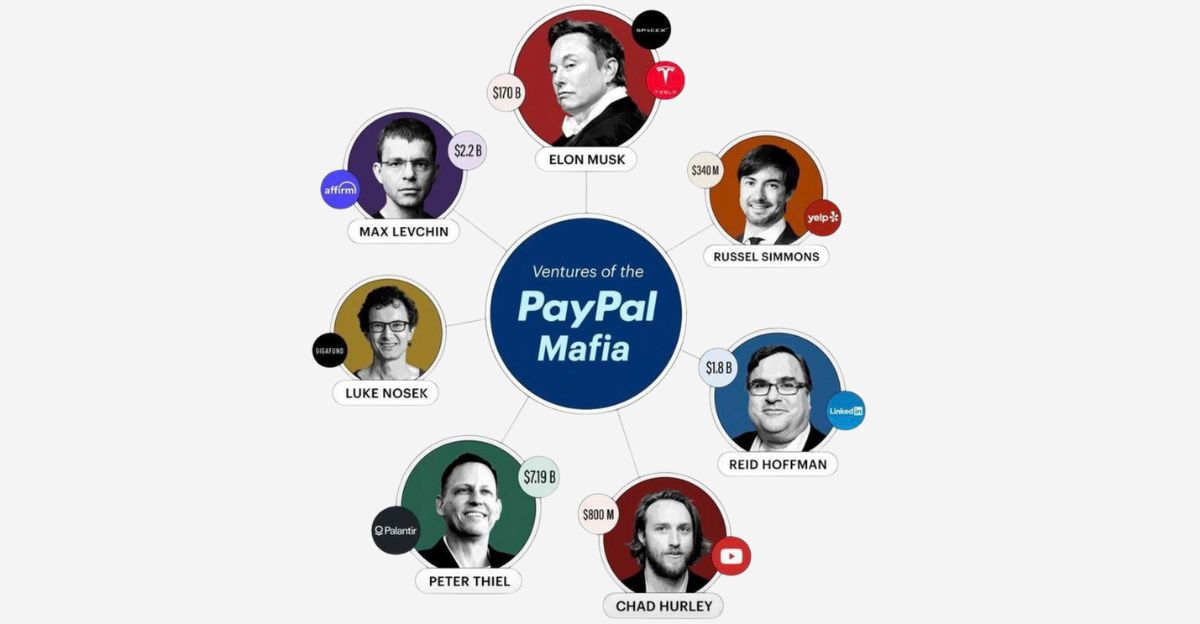
Opendoor, the real estate tech company, made headlines last week when its new board chairman, Keith Rabois, bluntly told CNBC that the company has “1,400 employees and I don’t know what most of them do.”
He claimed that Opendoor only needs about 200 people, implying that over 1,200 jobs could be on the line. After these comments, Opendoor’s stock crashed by 13% on Friday, right after soaring 78% the previous day.
The wild stock swings show how unpredictable and risky meme stocks have become for everyday investors, especially after Opendoor’s shares shot up almost 500% this year before reality sank in.
Big Leadership Shake-Up

Keith Rabois didn’t come back to Opendoor alone. He joined forces with new CEO Kaz Nejatian, who was brought in after activist investors pushed out the previous boss.
Many of these investors were retail traders who cheered on social media when Rabois and other founders returned, an event called moving into founder mode.
The company was almost wiped out earlier this year and fell below $1 per share before this shake-up.
Now, Opendoor’s future sits squarely in the hands of its original creators, who hope to rescue the brand and restore faith in its business model.
Zillow’s Collapse and Opendoor’s Rise

While Opendoor remains standing, its biggest former rival, Zillow, quit the instant home buying market in 2021 after losing over $1 billion and laying off a quarter of its workforce due to faulty price prediction algorithms.
After Zillow’s dramatic exit, Opendoor became the largest iBuyer in the U.S., buying and selling homes directly, but it faces a tough road ahead.
The business relies on strong technology, but it is still risky because small mistakes in predicting home prices can cause staggering losses.
Tech Layoff Tsunami Hits Real Estate

The whole real estate tech sector is struggling as rising interest rates and a slow housing market force companies to lay off workers.
Opendoor alone cut 1,100 jobs between 2022 and 2023, and more are threatened now by Rabois’s tough talk. Other names like Redfin, Compass, and Better.com have also laid off hundreds to thousands.
Across all American tech, over 100,000 jobs have disappeared in 2025, with companies switching focus to artificial intelligence and automation instead of traditional staff-heavy models.
Rabois’s Drastic Plans

During his CNBC interview, Keith Rabois shared a startling figure: Opendoor’s workforce could be cut from 1,400 to just 200.
That would mean letting go of about 1,200 people, or roughly 85% of all employees, a nearly unheard-of reduction. Rabois believes that artificial intelligence can take over most tasks, making many jobs unnecessary.
This bold idea shocked business watchers, even in Silicon Valley, where heavy layoffs have become common in downturns.
Local Impact of Layoffs

Many Opendoor’s employees work in expensive cities like San Francisco, Austin, and Miami. Software engineers there can earn from $180,000 up to $728,000 per year, so layoffs would profoundly affect local economies.
Besides laid-off workers, outside contractors and businesses that serve Opendoor would also suffer.
As more real estate tech jobs vanish, local housing demand in these areas could drop even further, stressing already shaky markets.
Stock Joy Turns to Job Fear

Just before the layoff news, Opendoor staff celebrated their new wealth as the company’s meme stock soared, with some even paying off debts or making big purchases.
But the mood quickly turned sour when Rabois’s comments brought the possibility of massive job cuts.
Workers’ feelings flipped from excitement and pride to anxiety and fear of being laid off, showing how much meme stock hype can affect real people’s lives, not just Wall Street numbers.
Surviving the iBuying Crash

The ups and downs of Opendoor’s stock price are just a symptom of deeper issues with the iBuying business model.
Buying homes is risky because companies must predict future sale values and hold properties in uncertain markets, which can cost a lot of cash if predictions are wrong.
As higher mortgage rates slow sales, companies like Opendoor are forced to cut prices, lose money, and now slash their workforce to survive.
Learning from Zillow’s Mistake

Zillow’s failed use of artificial intelligence is a significant lesson for the industry.
The company’s home-pricing computer models badly miscalculated during the pandemic, losing hundreds of millions of dollars on homes it bought for too much money.
Opendoor says its technology is better, but it is still tough to predict housing prices. Rabois’s plan to rely on AI to replace humans could backfire, as accurate local forecasting remains tough for even the most intelligent algorithms.
In-Office Mandate and the Culture Wars

Rabois blamed Opendoor’s problems on too many employees, remote work, and diversity programs, which he says hurt company culture.
He stated that employees working from home “didn’t work” and promised to restore the company’s original approach of office-based teamwork.
Criticizing diversity, equity, and inclusion (DEI) efforts put him in line with other Silicon Valley leaders who are rolling back these programs, saying a return to “merit and excellence” is needed.
PayPal Mafia’s Return

Rabois isn’t just any tech executive; he’s part of the PayPal Mafia, a group of legendary start-up founders including Elon Musk and Peter Thiel.
After creating Opendoor, Rabois backed other successful tech companies and manages billions in investments.
His return to Opendoor is a bet that founders can turn things around and a sign that only bold, original leadership might save the troubled company.
Activists Change Companies

Much of Opendoor’s recent drama was fueled by activist Eric Jackson, who used social media and Reddit to rally retail investors and pressure the company’s board for change.
Jackson’s viral online campaigns turned Opendoor into a meme stock.
They helped drive the management shake-up, showing how social media activism can now force major shifts in a company’s direction, not just in its stock price.
Boardroom Reset

Not only did Keith Rabois return as chairman, but original CEO Eric Wu also came back to sit on Opendoor’s board.
With new CEO Kaz Nejatian, the leadership team is now packed with company founders and early builders.
Their deep experience could help Opendoor survive, but it also signals that outside managers could not fix ongoing losses, and only the original visionaries might save the day.
Surviving Until Better Days

Opendoor is burning through cash, with $305 million in net losses over the past year. Even with recent fundraising, there’s a real risk the company could run out of money if it doesn’t cut expenses fast.
Massive job cuts could save up to $50 million a year. Still, risks include losing key talent.
Any real comeback will require balancing cost-saving with keeping enough skilled people to run the business in a challenging market.
Winners and Losers Emerge

The entire iBuying and real estate tech industry is consolidating. Weak companies are disappearing, while stronger ones are fighting fiercely for the leftover market share.
Opendoor is trying to branch out into related fields, like mortgages and insurance, to survive, but cutting too many jobs could leave it without the staff needed to compete.
How the company balances cost-cutting with expansion will determine whether it survives.
Regulators Step In

Opendoor and other iBuyers face mounting government attention as agencies worry about fair home pricing, consumers’ rights, and how companies use data.
New rules and investigations could mean more expenses and slower growth.
State and federal agencies are considering tighter regulations, adding another challenge to Opendoor’s efforts to slim down and return to profitability.
Ripple Effects Hit Other Tech Firms

Once a big company like Opendoor slashes its workforce, other real estate and tech companies may follow.
As Opendoor cuts back, its contractors, technology partners, and even banks that lend money to iBuying firms may face shrinking demand and increasing pressure.
The effect can snowball, threatening jobs and stability throughout the broader tech and real estate sectors.
Online Chaos

Some investors are thrilled the founders are back on Reddit and other social networks, while others panic that 85% of workers could lose their jobs.
Social media is now full of speculation, rumors, and concern, with employees left in the dark and investors swinging between hope and worry.
The online chaos shows how intimately meme stock hype and workforce realities are now tied together.
Lessons from Earlier Layoffs

Rabois’s plan echoes earlier tech layoff waves, especially Zillow’s firing of 2,000 staff after its own iBuying missteps in 2021.
Other tech giants like Amazon, Meta, and Microsoft have slashed workforces recently, too.
Opendoor’s proposed 85% job cut is unmatched in size and signals another painful chapter in start-up history where fast growth leads to deep cuts when business models stumble.
Can Founder Focus Save Opendoor?

Keith Rabois’s return brings one of the boldest attempted turnarounds seen in Silicon Valley: firing most workers in hopes that automation and a tighter strategy can save Opendoor.
The cutbacks are a gamble that technology and original leadership are enough to weather a brutally tough market.
Whether the company pulls off a comeback or crashes and burns will set the tone for the entire iBuying field and give a new lesson in what happens when hype, innovation, and economic reality collide.